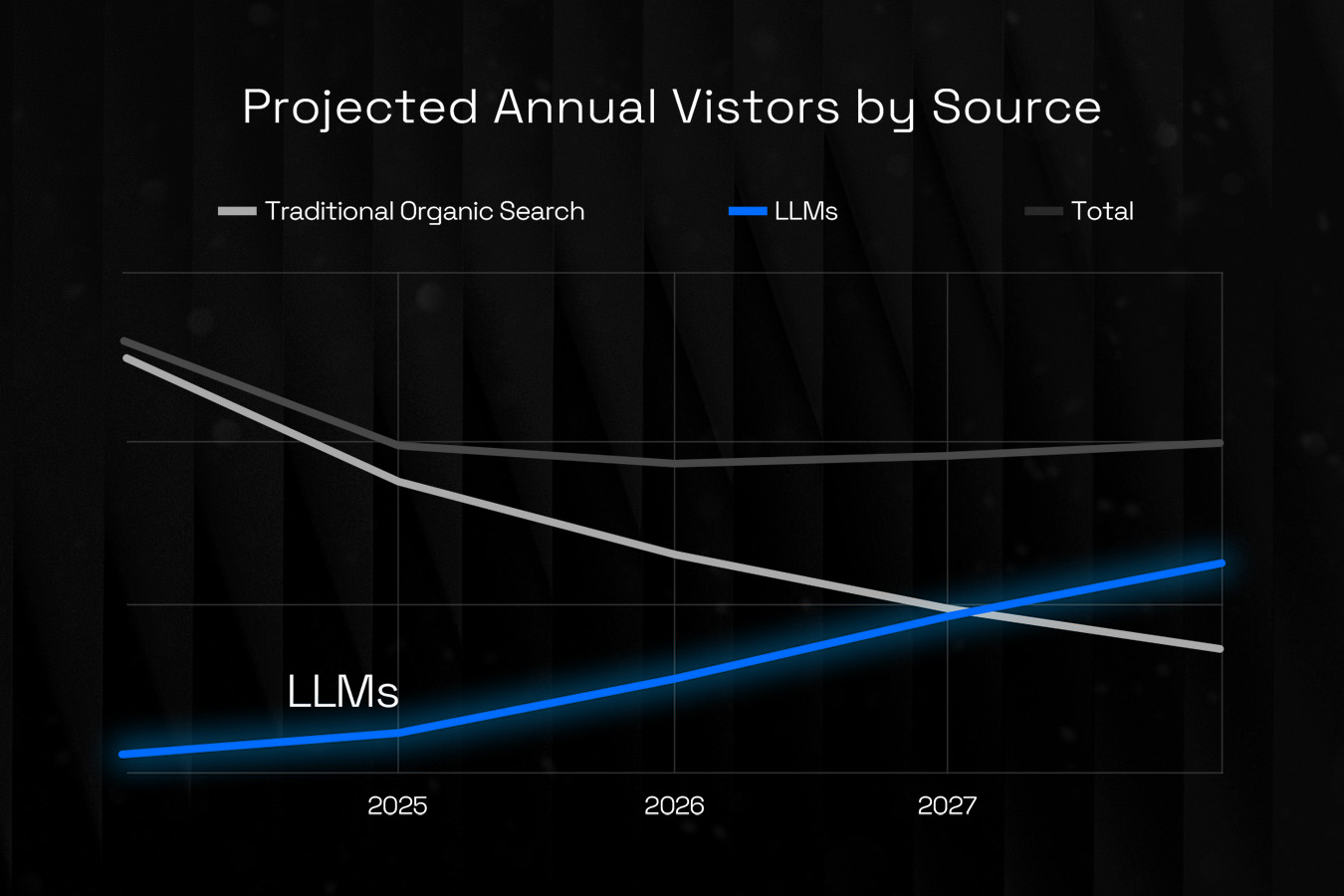
TL;DR
Yes, search engines are going to die, but search is not. Sooner than you think, most searches will be made using AI via LLMs or something like Google’s AI mode. Welcome to the world of Generative Engine Optimization.
For years now, experts have considered Large Language Models (LLMs) the inevitable endgame for traditional search. That future is no longer a distant concept; it's here. Experts predict that AI will overtake traditional search as the primary driver of online traffic by 2028. Now is the time to get ahead of your competitors before they realize it’s too late. If your brand isn't visible in AI-generated results, a competitor will soon be.

The crazy thing is, our techno feudal overlords saw this coming years ago. In 2020, years before ChatGPT became a household name, Google was developing its own advanced conversational AI, LaMDA (Language Model for Dialogue Applications). Mustafa Suleyman, co-founder of DeepMind and now CEO of Microsoft AI, confirmed that LaMDA was "Genuinely ChatGPT before ChatGPT".
You might be a bit confused as to how Google had such a head start on ChatGPT but there is a strong likelihood that you have never heard of LaMDA, well that’s because it was never really publicly released.
And why didn’t Google release it?
According to Suleyman, Google leadership feared LaMDA would undermine their search empire. Internal documents show that executives repeatedly denied requests to deploy the model, concerned that it violated the company's "AI principles around safety and fairness" and could cannibalize their core revenue stream. They knew a technology that could provide direct, concise answers threatened a business model built on clicks and ad revenue.
This hesitation created an opening, and the subsequent explosion of generative AI has proven their fears were justified. The shift is happening now, and marketers can't afford to wait.
While the era of traditional Search Engine Optimization (SEO) is closing, the good news is that its successor, Generative Engine Optimization (GEO), shares much of its DNA. The fundamentals of SEO are highly transferrable, but you must stay adaptable and get ready to rethink our people engage with your business online.
Traditional tactics like keyword stuffing are becoming less effective. Instead, the new playbook requires a layered optimization strategy focused on influencing AI models directly. A new discipline, Generative Engine Optimization (GEO), is emerging to tackle this new reality. Here’s a few tips to help you start to understand this new concept.
The shift away from traditional search isn't theoretical; it's already impacting businesses. Some business owners have reportedly already forecast a 40% year-to-year drop in organic search traffic originating from Google. Many users report that they now use AI for direct answers, often appending "Reddit" to their Google searches to find authentic human experiences instead of SEO-optimized articles.
AI-driven search is not a future trend; it's a drastic shift happening today. Brands that adapt will gain a significant first-mover advantage by aligning their content with how AI interprets and ranks information.
The core mission remains the same: create value, build authority, and connect with your audience. However, the channels and tactics have irrevocably changed. The open web is not dying, but it is being transformed into a world of perfectly optimized summaries. The question is no longer
if you need an AI strategy, but whether you can afford to be left behind.
Prepare your brand for the new reality of search. Contact us to learn how we can help you navigate this transition and secure your visibility in the age of AI.